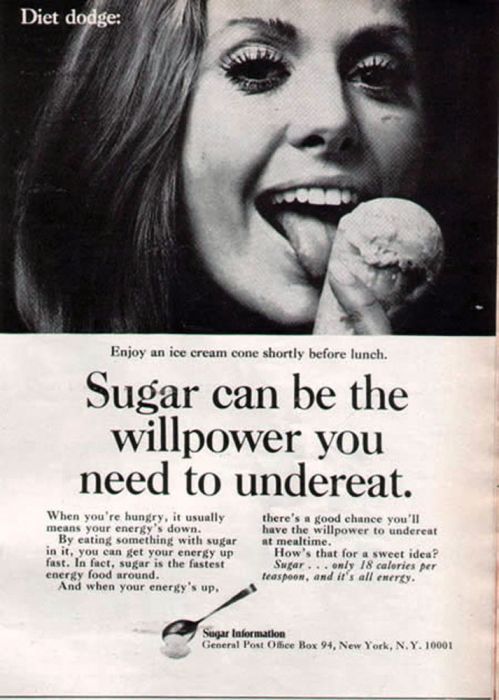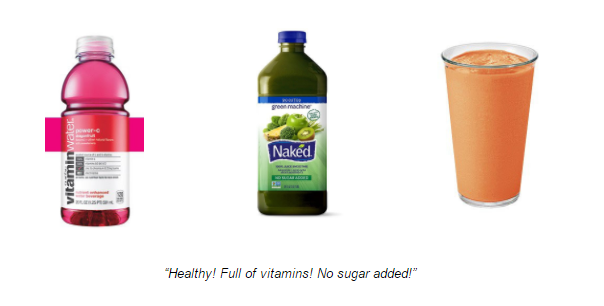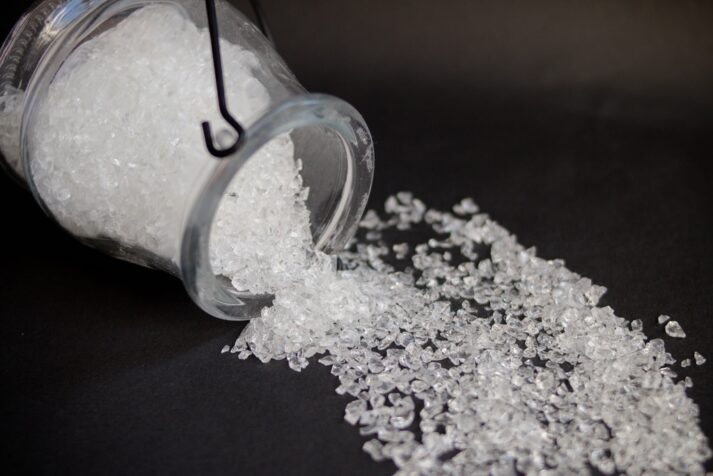Originally Posted At: https://breakingmuscle.com/feed/rss
Originally posted at: http://www.nerdfitness.com/
Hey, I was young. I didn’t know any better!
And the money was good. So, how could I turn it down? As a high school kid, you make money any way you can, even if it’s something you’re not thrilled about.
And that’s how I ended up spending two summers with my older brother Jack working for Coca-Cola, which I talked about on Steve’s Instagram:
That’s right, your boy Steve – a guy who once wrote an article explaining why Sugar is Worse than Jar Jar Binks – used to work for the enemy!
For two summers, my brother and I would wake up at 5AM, put on the sweet Coke polo shirts pictured above, hop into our Coca-Cola cars (old station wagons with Coca-Cola logos on the side), and stock shelves full of Coke products for 50-60+ hours a week on Cape Cod.
Now, hopefully you know that the above “enemy” comment is in jest.
If you happen to be currently employed by Coca-Cola or a company that sells products or services that are unhealthy, I don’t mean to pick on you or your employer…kind of. After all, Coca-Cola is a company that aims to make a profit by selling products that are delicious. I get it. Give me an ice-cold Mexican Coke made with real sugar in a glass bottle on a hot day, and it’s heaven. I also know they donate lots of money to charity, employ thousands, and do plenty of good things, and blah blah blah.
Okay! Now that that’s out of the way…
Twelve years after working indirectly for Big Sugar and seven years after starting Nerd Fitness, I now know just how detrimental sugar can be to our health, and it brings me to the point of today’s article!
We know sugar is bad for us (right? I hope?), but I wasn’t aware just how insidious this stuff has become in society and until I learned the history behind sugar’s rise in our day-to-day lives – and the rise in our obesity rates.
The history of sugar is both fascinating and pretty messed up. For starters, in the 1960’s the sugar industry actually paid scientists to downplay the connection between sugar and heart disease and instead promote saturated fat as the culprit.
Screw facts and data; there’s money to be made!
This is how we ended up with hilariously depressing ads like the one below from the 1970’s, touting sugar as a great path to weight loss and healthy living:

If you know anything about sugar, you can’t help but look at that ad and start laughing. “Use sugar to help you BUILD willpower? And NOT overeat.” Seriously!?
Fortunately, these days we’re MUCH better off and way smarter, and silly tricks like that can’t work anymore.
Right?
Wrong! As pointed out in “The Case Against Sugar” by Gary Taubes: “Academic researchers in 2015 were doing the bidding of Coca-Cola by taking its money to fund a Global Energy Balance Network and ‘shift blame for obesity away from bad diets, and instead only focus on not enough exercise.’”
We know here at NF that you can’t outrun your fork (it’s one of our Rules of the Rebellion), and you can’t out-train a bad diet, so telling people to ONLY focus on exercising more without worrying about what you put in your bodies is horrible advice.
Luckily, this group was shut down amidst widespread scrutiny and pressure by the public!
Also, pesky things like “facts” and “experimentation” kept getting in the way.
With all of the information coming out about how unhealthy soda can be in recent years, soda sales have steadily dropped to 30 year lows. This is AWESOME news, but don’t expect Coke and Pepsi to go quietly into the night.
Like any animal or company that’s been cornered or attacked, they’re adapting and fighting to stay relevant.
Thus, the strategy they’ve adopted is marketing “healthy” soda alternatives to find another pathway to connect their sugar water with our bloodstreams.
If you’ve picked up a Vitamin Water, a Naked Juice: Green Machine, or a Smoothie King fruit smoothie lately, and patted yourself on the back for making the healthy choice, your head is in the right place…but your blood sugar level will say otherwise!

These beverages, despite everything you’re told on their labels and what they advertise, are as bad for you (or worse) than drinking a soda:
At least when you drink a soda you know you’re making an unhealthy choice!
Shame on these other companies for convincing you their products are pure and healthy when they often have as much or more sugar as a can of Coke.

If you’re currently pissed off that you’ve been dutifully chugging Vitaminwater for the past few months instead of soda, assuming it’s healthier, I don’t blame you! The marketing and packaging leave you no choice BUT to assume it’s healthy and good for you.
What’s as funny as it is depressing is that even Coca-Cola executives themselves know their “healthy” marketing of these beverages is horseshit.
In 2015, when taken to court over the unsubstantiated health claims of Vitaminwater, Coca-Cola actually used the following defense (seriously): “No consumer could reasonably be misled into thinking Vitaminwater was a healthy beverage.”
I read that quote and my eyeballs almost fell out of my head. Are you furious yet? I am. Let’s fix it.

I get it. Sugar is awesome. It’s delicious and makes us happy…temporarily.
It also makes us fat.
And holy **** is it addicting. It targets the pleasure centers in our brains, and is more available now than it has ever been in the history of our species. Unfortunately, our lizard brains have not adapted to its widespread availability instead of scarcity, which means our bodies can’t say “no” or “just a little.” This means we can ACTUALLY get hooked on the stuff. There are even studies that claim sugar can be as addicting as cocaine.
So the solution is simple: do more cocaine, less sugar!
Hahahaha, kidding. I’m not a doctor, and I don’t currently have pants on as I type this, but my advice would be to probably avoid both sugar and cocaine as much as possible.
Unfortunately, avoiding sugar is more than just giving up soda (though that’s a DAMN good start!). Other problems arise because sugar is in EVERYTHING and often hidden.
Why can’t we just tell the truth, people?

We talk a lot about a nefarious shadow organization making us fatter and lazier in our monthly story-driven adventure, Rising Heroes.
I thought it would be fun to create a dragon to slay. However, when you read that stuff above about:
It’s like there really is a conglomeration of bad guys aiming to make us unhealthy.
Here’s how you can fight back. Follow these 4 quick rules to keep sugar from ruining your life:
1) Whenever possible, minimize liquid calories. This includes frappucinos and sodas, but also “real fruit smoothies” and “healthy” Naked Juice drinks, Gatorade, and even things like apple juice, orange juice, grape juice, cranberry juice, etc. Every once in a while? Sure. Just make it a rare treat (“treat yo’ self!”) – you’ll actually enjoy it more and be healthier!
I personally prescribe to the “out of sight, out of mind” philosophy because I have the willpower and restraint of a 5-year kid in a candy store. I don’t keep sugary beverages in my house so I’m not tempted and have to waste willpower trying not to drink them.
I’ve found that drinking sparkling water like LaCroix can really help me THINK I’m drinking soda, and provide me with the same level of happiness and fizzy satisfaction – without the sugar.
To answer your next question: here’s a whole article on “Is Diet Soda bad for me?” High five!
Still here? Good. Here’s a picture of a puppy:

Okay, back to business.
2) Don’t trust the front of the label, and learn to recognize sugar’s aliases. A label is required to list ingredients by amount, so by adding multiple types of sugar with weird names, a company can get away with moving sugar down the list.
Look for the following names: Agave nectar, Brown sugar, Cane crystals, Cane sugar, Corn sweetener, Corn syrup, Crystalline fructose, Dextrose, Evaporated cane juice, Organic evaporated cane juice, Fructose, Fruit juice concentrate, Glucose, High-fructose corn syrup, Honey, Invert sugar, Lactose, Maltose, Malt syrup, Molasses, Raw sugar, Sucrose, Sugar Syrup.
If you only look at two numbers on the back of a box, look at grams of sugar and total calories. You want minimal sugar and fewer calories. Don’t let perfect be the enemy of good. Do the best you can!
Oh, and if a product says “no sugar added” on the front of it, you can bet your life savings on it having a RIDICULOUS amount of sugar.
Note: please don’t bet your life savings on this.
3) Be skeptical, because sugar is in practically everything. When in doubt, eat things with fewer ingredients. We consume 130 pounds of sugar per year on average (holy crap), which means the white stuff in in way more foods than we realize. Not just candy and soda, but practically everything.
Nature Valley Granola Bars? Plenty of sugar. In fact, most “protein bars” have tons of sugar. And, until outraged customers complained, “Nature Valley” Granola Bars were made with high fructose corn syrup. Mmmm, nature.
Pasta sauce? Should just be tomatoes right? Nope. Add in heaping tablespoons of high fructose corn syrup too and you’re getting closer.
Wheat bread? That’s gotta be healthy, right? Check the ingredients. I bet one of the top 5 is “high fructose corn syrup” too.
Hell, look at what’s advertised as a “balanced breakfast” these days on TV! Cereal and skim milk, fruit, a glass of orange juice, and toast. Or, in other words: sugar and sugar water, sugar, sugar water, and pile-o-carbs.
4) Track your sugar intake, and minimize it over time. As I cover in “Star Wars Explains Why We’re Fat,” everybody has a different amount of “gimme gimme gimme” in our brains that craves instant gratification.
This means we all have different abilities to get addicted to things, including sugar. Some people can eat sugar (or have one drink, or try drugs) and not get hooked, while others struggle with addiction instantly – once is enough to get hooked for life.
This comic explains human behavior and addiction quite well…with dinosaurs.
If you are somebody who is actually hooked on sugar, start by tracking your sugar intake each day (actually look up the sugar content of everything you consume!), and see how many grams you’re eating every day. Don’t worry about total numbers, just focus on eating less sugar than the day before. Repeat.
Michael Pollan, author of the Omnivore’s Dilemma said it succinctly: “Eat food, not too much, mostly plants.” Eat real food (meat, vegetables, unprocessed stuff), keep your calorie total down, and stick to mostly plants along with healthy protein. Done!
We’ll continue digging into this battle against Big Sugar, shadow organizations, and false advertising in future posts. It’s amazing how heavily the deck is stacked against us when we try to be healthy, and how tough it is to find the actual truth!
I have no problem with sugar and people making choices that don’t line up with their health goals occasionally.
What really grinds my gears is when sugar is snuck into products and falsely marketed as healthy. We’re going to fight, and it starts by educating ourselves on how much sugar we’re actually eating.
Over the next week, your mission is to read the labels on the food and beverages you’re consuming. Specifically keep an eye on how many grams of sugar you’re consuming. Then over the next few weeks, try to drop that amount down by 10% each week. And then let me know how you did!
I want to hear from you: did you find this post useful? Hit reply and let me know if this article is actually gonna help you start to remove more sugar from your life!
-Steve
PS: We’ve recently overhauled our monthly story-driven experience, Rising Heroes. We’ll be opening doors for it next Monday, a few weeks later than normal – if you were waiting to get in, sorry for the delay. I promise it’ll be worth it – we’ve unrolled some big updates! 🙂
PPS: If you want to learn about the history of sugar and a contrarian viewpoint to “calories in, calories out no matter what they are,” check out Taube’s book “The Case Against Sugar.” It’s thought provoking and entertaining.
###
photo credit: Julien.Belli: Always Coca-Cola, wuestenigel: Macro of Decoration Crystals
http://www.thekitchn.com/feedburnermain
What do you look at in your kitchen every day? Are you lucky enough to have a window to the outdoors? Do you paper your refrigerator with cheerful photographic reminders of parties and good times? Do you have a favorite piece of art?
If you’re looking for something to fix your focus upon in the kitchen, artistically speaking, here’s one message I wish you would consider.
http://www.thekitchn.com/feedburnermain
When you’re gathering friends for a party, there’s bound to be concern about making food that everyone can eat. You may have a gluten-free guest, someone who is vegan, or maybe both, along with that friend who eats absolutely everything — so how do you please the whole gang? These appetizers are a good start. They all cover almost every dietary restriction while still managing to be so tasty that those without any will love them just the same.
http://www.thekitchn.com/feedburnermain
Funfetti is fun, but you know what is even more fun? One-bowl confetti cupcakes, one of the many recipes that show off the versatility of our one-bowl vanilla cake recipe. Need a quick cupcake for your school bake sale or a cute dessert to take to book club? These funfetti cupcakes fit the bill and don’t require any special ingredients, skills, or cleanup.
http://www.thekitchn.com/feedburnermain
Some people like lemons. And then there are those who really like lemons — as in, they’re total lemonheads and like to suck on lemon slices as if they’re oranges. Is that you? We’ll assume yes. You wouldn’t have clicked on this story if it wasn’t!
With that settled, we’d like to know how many of these lemon treats you’ve had before. Take a look! And then start making plans to try the ones that are new to you.
http://www.thekitchn.com/feedburnermain
In addition to the killer snack selection, it should come as no surprise that Trader Joe’s also has an impressive lineup of appetizers that make for an “appy hour” spread. They’re fast, yes, and they’re all slight upgrades from what you’d usually serve.
Here are 10 things you should always consider.
http://chriskresser.com/

While intermittent fasting has been lauded for its health benefits, including promoting cellular maintenance and protecting against aging and neurodegenerative diseases, popular wisdom maintains that skipping breakfast is bad for you. Often labeled as the most important meal of the day, breakfast is said to “boost metabolism” and reduce hunger. But is this really true? Mounting evidence suggests that eating three meals a day may not be important for weight loss.
David Allison, director of the UAB Nutrition Obesity Research Center and senior investigator on a recent long-term study, commented:
“The field of obesity and weight loss is full of commonly held beliefs that have not been subjected to rigorous testing; we have now found that one such belief does not seem to hold up when tested. This should be a wake-up call for all of us to always ask for evidence about the recommendations we hear so widely offered.” (1)
In this article, we’ll explore the evidence for and against eating breakfast with all its nuances, including an ancestral approach, the problems with association studies, a review of the biochemistry of intermittent fasting, and relevant results from randomized controlled trials.
For those of you who have been following my blog for a while, you know that I like to look at health questions through an ancestral or evolutionary lens in addition to looking at the latest scientific research. So, did early human anthropoids eat breakfast?
The truth is, it’s hard to know for sure, but it’s thought that most hunter–gatherers ate intermittently depending upon food availability. (2, 3) Loren Cordain, founder of the Paleo diet, writes:
“The most consistent daily eating pattern that is beginning to emerge from the ethnographic literature in hunter–gatherers is that of a large single meal which was consumed in the late afternoon or evening. A midday meal or lunch was rarely or never consumed and a small breakfast (consisting of the remainders of the previous evening meal) was sometimes eaten. Some snacking may have occurred during daily gathering, however the bulk of the daily calories were taken in the late afternoon or evening.” (4)
It appears that the three-meals-a-day paradigm was not adopted until the Agricultural Revolution around 10,000 years ago. Frankly, the fact that we eat three times a day is somewhat arbitrary and seems to be based on when it was most convenient to eat during farm work and harvest. (5)
Most studies regarding breakfast consumption and obesity are association studies. And while there is undeniably an association between a lean body type and breakfast consumption, correlation does not imply causation, and many of these association studies have been inappropriately used to shape recommendations for weight loss.
I have talked before about the healthy user bias on my blog in the context of red meat. Because “eat breakfast” is such popular health advice, people who are committed to their health are more likely to eat breakfast. They are also likely to avoid smoking, manage stress, and eat more fruits and vegetables, all things associated with a healthier weight. Breakfast eaters tend to be leaner, but this doesn’t mean that they are lean because they eat breakfast.
Can you lose weight faster if you skip breakfast?
While the healthy user bias is difficult to avoid when designing a research study, there are also more intentional breaches of good science mixed up in this question. A recent meta-analysis looked at the proposed effect of breakfast on obesity (PEBO) and found that the PEBO was subject to two common practices used to distort scientific evidence. (6) The first was biased research reporting. Authors of breakfast studies were guilty of biased interpretation of their own results, misleadingly citing others’ results, and improper use of causal language. This is similar to confirmation bias or the “a priori” effect. When you presume something to be true, like “eating breakfast causes weight loss,” all of your research and interpretation flow from that belief.
The second was what they called “research lacking probative value” (RLPV). This is where experiments either continue to be performed about questions that have already been sufficiently answered or are designed in such a way that they simply cannot advance scientific knowledge about the question. As the authors put it:
“… at some point, additional similar observational analyses will only trivially add to our knowledge regarding the PEBO. […] The association, but not the causal relation, between breakfast and obesity has been more than sufficiently established.” (6)
Other scientific reviews came to similar conclusions: it’s abundantly clear that there is an association between leanness and breakfast intake. But to really determine if the breakfast–weight connection is causative, we need long-term, randomized trials. (7, 8, 9)
Luckily, in the last few years, several research groups have sought to use randomized controlled trials (RCTs) to answer the question “does eating breakfast cause weight loss?” Let’s take a closer look at the studies and what they found.
In one of the first RCTs in 1992, researchers separated 52 moderately obese adult women based on their normal breakfast habit (whether they ate or skipped breakfast regularly) and then randomly assigned half of each category to a breakfast group and half to a no-breakfast group. In their results, they reported a trend suggesting that women who had to make the most substantial changes to their initial eating habits achieved more weight loss. Essentially, habitual breakfast skippers tended to do a bit better when they had to eat breakfast, and habitual breakfast eaters tended to do better when they had to skip breakfast. (10) Unfortunately, when this result was cited by other studies and the media, it was widely misconstrued. First, the researchers only observed a trend for this interaction effect, meaning that it did not reach the level of statistical significance (p < 0.06, for those familiar with statistics). Second, the study was widely reported in the scientific literature as having shown that eating breakfast led to weight loss, even though the authors never concluded anything of the sort. Unfortunately, poor reporting of this study shaped scientific and popular opinion for several decades.
The belief that breakfast is important for weight loss prevailed, despite a few smaller studies that found that skipping breakfast had no effect or even a potential beneficial effect on weight loss. In 2013, Cornell researchers performed a randomized crossover study in 24 undergraduate students and found that skipping a meal did not result in energy compensation at later meals and that it might even be an effective means to reduce energy intake in some people. (11) In 2015, researchers in the UK performed a similar study with a week-long intervention in 37 participants and concluded that “there is little evidence from this study for a metabolic-based mechanism to explain lower BMIs in breakfast eaters.” (12) However, these studies were both relatively short-term compared to the 1992 study and didn’t receive as much attention.
In 2014, as part of the Bath Breakfast Project in the UK, 33 obese adults were randomly assigned to a breakfast group or no-breakfast group for six weeks. (13) The breakfast group ate slightly more calories but was also a bit more physically active. The no-breakfast group ate fewer calories over the entire day but was also slightly less active and had slightly more variable glucose levels in the afternoon and evening at the end of the trial. Body mass and fat mass did not differ between the two treatments, and neither did indexes of cardiovascular health. Contrary to the popular notion that breakfast “boosts metabolism,” resting metabolic rate did not differ between the groups. Breakfast also did not provide any significant suppression of energy intake later in the day. It seemed like the evidence was mounting against popular belief.
Finally, in the largest long-term, multisite clinical trial to date, researchers attempted to settle the debate once and for all. They randomized 309 obese adult participants to a breakfast group or no-breakfast group for 16 weeks. They reported in the American Journal of Clinical Nutrition:
“A recommendation to eat or skip breakfast for weight loss was effective at changing self-reported breakfast eating habits, but contrary to widely espoused views this had no discernable effect on weight loss in free-living adults who were attempting to lose weight.” (14)
Over 92 percent of subjects complied with the recommendation they were given, but it had no impact on weight loss. They also separated individuals based on their baseline breakfast habit and found no interaction between initial breakfast habit and success of the intervention. This is directly contrary to the near-significant interaction found by Schlundt and colleagues in 1992 and was a much larger study.
But wait, does a bowl of cereal and toast with jam have the same effect as an egg omelette, greens, and a sweet potato? Food quality matters more than food quantity, right? Yep. When “breakfast” is lumped into one big category, there’s not conclusive evidence for or against it, (15) as we saw in the previous section. But researchers have looked at different types of breakfast and weight loss as well, with some intriguing results.
In 2015, a study in China found that obese teenagers ate less at lunchtime if they had an egg breakfast compared to a bread breakfast. The egg breakfast was reported to increase levels of satiety hormones, keeping them full for longer. The egg breakfast group also had significantly more weight loss. (16) Sounds pretty good to me! Unfortunately, there wasn’t a “no-breakfast” group in this study, so it’s hard to know how the egg breakfast would have compared to intermittent fasting.
Researchers in Missouri performed a randomized trial in 2015 with three different groups. They randomly assigned 57 breakfast-skipping teens to a cereal-based breakfast (13g protein), an “egg-and-beef rich” breakfast (35g protein), or to continue skipping breakfast. They found that the egg-and-beef breakfast led to voluntary reductions in daily food intake and reduced reported daily hunger. It also prevented fat mass gains over the 12-week study. (17)
The truth is, most of the studies above (that found no effect of breakfast) were likely based on a typical high-carbohydrate breakfast, a la the Standard American Diet. It would be very interesting to see the metabolic response to breakfast omission in a group of healthy individuals eating a nutrient-dense, evolutionarily appropriate diet.
What about fasting in relation to exercise for weight loss? In the fed and fasted states, we preferentially oxidize (“burn”) different substrates to produce energy. Could exercising in one state or the other provide benefits for weight loss? In 2012, researchers in London performed a crossover study, monitoring food intake and energy expenditure in 49 participants during one week with breakfast and one week skipping breakfast. They found that total energy intake, energy expenditure, and activity levels did not differ between conditions. (18)
A study in Japan in 2014 used a randomized crossover design with eight male subjects, all of whom were habitual breakfast eaters. The subjects were instructed to eat or skip breakfast, and the researchers measured their energy expenditure during the day. Interestingly, they found that breakfast skipping did not affect energy expenditure, fat oxidation, or the thermic effect of food if you looked at the entire 24-hour period (similar to the previous study), but it did change the rhythm over the course of the day. When people skipped breakfast, energy expenditure was lower during the morning but higher during the evening and sleep than those who ate breakfast. Breakfast skipping increased fat oxidation and reduced carbohydrate oxidation in the morning relative to breakfast eating and increased carbohydrate oxidation during the evening. (19)
Following up on this study, a crossover study in Korea in 2015 tracked 10 obese male college students. For one week, they ate before their morning workout. The second week, they ate breakfast after their morning workout. Their results? The fasted workout caused the men to burn more body fat, but it also increased levels of the stress hormone cortisol after exercise relative to the fed workout. (20) While burning body fat is beneficial to weight loss, large rises in cortisol are not. It should be noted that these participants were not adapted to fasted exercise and that “fat-adapted” people might have a smaller cortisol response to fasting. I’ll explore this idea more in the next section, when we dive into the biochemistry.
What do these studies tell us? Well first, the thermic effect of food in the morning, a common argument for why we should eat breakfast and “boost our metabolism,” is a myth. Over the total course of a day, total energy expenditure does not change. They also suggest that morning fasting might be a great time for a fat-burning workout, as long as it’s not too stressful on your body.
When you eat, the hormone insulin is released from your pancreas to the bloodstream and shuttles glucose (carbohydrate) into muscles and other tissues, where it is used for energy production. Excess glucose is converted to fat and stored in the adipose tissue. When you fast, the hormones glucagon and cortisol stimulate the release of these fatty acids from adipose tissue into the bloodstream. The fatty acids are taken up by the muscles and other tissues and broken down (oxidized) to produce cellular energy. In this concerted manner, the body switches from utilizing carbohydrates to fats as its primary fuel and ensures a constant source of energy to the body.
This is all good and rosy, as long as the body can actually make this metabolic switch. In the scientific literature, this is called “metabolic flexibility,” (21) though you may be familiar with it as “fat-adapted.” People who are “fat-adapted” are more accurately “metabolically flexible,” meaning that they can easily switch from oxidizing carbohydrates in the fed state to oxidizing fat in the fasted state, and vice versa. On the other hand, people who are said to be “carb-adapted” are “metabolically inflexible,” meaning that they are constantly burning carbohydrates and have trouble switching to fat oxidation. These people still release fatty acids from adipose tissue to the bloodstream but have lost the capacity to oxidize fatty acids in the muscle and other tissues. The accumulation of lipids due to reduced fatty acid oxidation has been hypothesized to cause insulin resistance, (21) and a low ratio of fat to carbohydrate oxidation has been identified to be a good predictor of weight gain. (22)
The phenomenon of metabolic inflexibility may explain some of the results of breakfast studies. Most of the participants in these studies were individuals eating an evolutionarily inappropriate Standard American Diet with large amounts of refined carbohydrates three times a day. If, all of a sudden, you instruct these “carb-adapted” people to skip breakfast, you’re asking for a blood glucose crash and insatiable hunger by lunchtime. In reality, most people who want to try intermittent fasting transition do so gradually by slowly increasing the time between meals, allowing the body to adapt and restore metabolic flexibility.
This may explain why prior breakfast habits have an effect in some studies. Researchers at the University of Colorado studying 18 overweight women found that the adverse effects of skipping breakfast were restricted to habitual breakfast eaters. While habitual breakfast eaters who skipped breakfast had increased blood lipids, insulin, and free fatty acid responses at lunchtime, habitual breakfast skippers who skipped breakfast had none of these effects. The authors concluded that meal skipping may have enhanced effects in habitual breakfast eaters due to entrainment of metabolic regulatory systems. (23)
So, skipping breakfast might not cause weight loss in the short term, but if over the long term it allows your body to “reset” and restore metabolic flexibility and insulin sensitivity, you may ultimately see some weight loss benefit. This is especially true if you’re also improving the overall quality of your diet. A low-fat diet reduces your body’s ability to release fatty acids from adipose tissue and oxidize them in the muscle, (24) while a high-fat diet increases the ability to use fat for energy in muscle and thus improves metabolic flexibility. (25, 26)
If you’re overwhelmed by this quantity of research, you’re not alone. Researchers have been struggling to find consensus on this topic for decades. If you glazed over some of it, here are the major takeaways from this article:
And that’s it! If anything is clear from this consortium of research, it is the need for individualized nutrition. I’ve written several articles and spoken on my podcast previously about why intermittent fasting (IF) may not work for everyone. If IF works for some people (they lose weight) and is detrimental to others (they gain weight), and these people are all lumped together, we’ll see a net zero change in weight.
So how do you know if intermittent fasting is right for you? Try an n=1 experiment: eat or skip breakfast for a period of time, and notice how it affects your weight, mood, productivity, gut function, and other factors. Transition slowly if necessary, by eating your first meal of the day later and later each morning. There are some predictors of success with fasting, but only you can really know if IF works well for you.
Are you a breakfast-eater, or a breakfast-skipper? Has IF helped you to lose weight or improve your health? Share your experience in the comments!
http://www.thekitchn.com/feedburnermain
From Apartment Therapy → Not in Love With Your Backsplash? We Tested Adhesive, Removable Smart Tiles
http://www.thekitchn.com/feedburnermain
There’s a certain type of person who never has to wait for a drink at a party. For some reason their mere presence causes any bartender or cocktail waiter in a close proximity to hop to attention, like James Bond for instance — I’m pretty sure he’s never had to flag down a bartender to order his signature martini. And waiters with hors d’oeuvres probably flock to him with trays of cocktail hot dogs.
You too can possess this magical allure at all of your friends’ weddings this season. Here’s how.